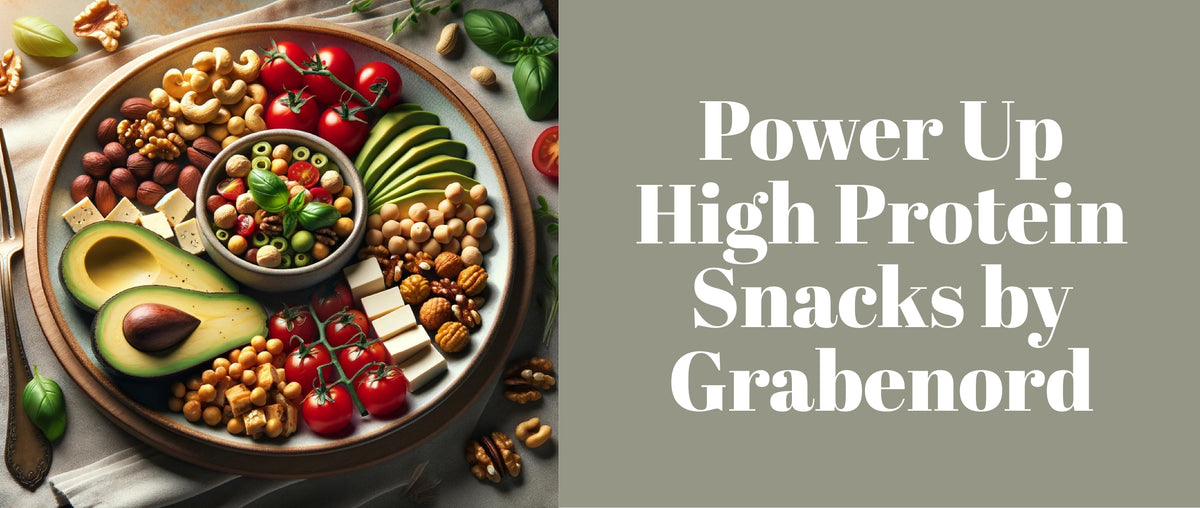Best Vegetables for Heart
Maintaining heart health is crucial for leading a long and fulfilling life. A heart-healthy diet plays a significant role in preventing heart disease and promoting overall well-being. Incorporating the right vegetables into your diet can make a substantial difference. In this article, we will explore the best vegetables for heart health, along with other heart-healthy foods, practical tips, and scientific evidence supporting their benefits.
Key Takeaways
- Tomatoes: Rich in lycopene and antioxidants.
- Broccoli: High in fiber and vitamin C.
- Spinach: Packed with iron and folate.
- Carrots: Abundant in beta-carotene and vitamin A.
- Bell Peppers: Full of vitamin C and antioxidants.
- Kale: Contains vitamins A, K, and C.
- Garlic: Known for its allicin content, helps reduce cholesterol.
- Leafy Green Vegetables: Essential for their vitamins and minerals.
- Berries: High in antioxidants and fiber.
- Avocados: Source of healthy monounsaturated fats.
- Beans: Provide protein, fiber, and nutrients.
- Beets: Help in lowering blood pressure.
- Sweet Potatoes: Rich in beta-carotene and fiber.
Understanding Heart Health
Heart disease remains one of the leading causes of death worldwide. It encompasses various conditions, including coronary artery disease, heart attacks, and strokes. The impact of heart disease is profound, affecting millions of people globally. However, a heart healthy diet can significantly reduce the risk of developing heart-related conditions.
Diet plays a pivotal role in maintaining heart health by influencing cholesterol levels, blood pressure, and overall cardiovascular function. Consuming a diet rich in plant based foods, such as vegetables, fruits, and whole grains, helps in promoting a healthy heart.
Nutrients Essential for Heart Health
Several key nutrients are vital for maintaining heart health:
- Fiber: Helps reduce cholesterol levels and supports healthy digestion.
- Antioxidants: Protect the heart by neutralizing harmful free radicals.
- Omega-3 Fatty Acids: Reduce inflammation and lower the risk of heart disease.
- Vitamins and Minerals: Essential for overall heart function and health.
Incorporating these nutrients into your diet through cholesterol free foods like vegetables, fruits, nuts, and seeds can promote a healthy heart.

Top Vegetables for Heart Health
Tomatoes
Tomatoes are rich in lycopene, a powerful antioxidant that helps protect the heart. Lycopene has been shown to reduce LDL (bad) cholesterol levels and lower the risk of heart disease. Additionally, tomatoes are high in vitamin C and potassium, both beneficial for heart health.
How to Include Tomatoes in Your Diet:
- Add fresh tomatoes to salads and sandwiches.
- Use tomato sauce for pasta dishes.
- Enjoy tomato-based soups and stews.
Broccoli
Broccoli is a cruciferous vegetable packed with fiber, vitamins, and minerals. It is particularly high in vitamin C, vitamin K, and potassium. The fiber in broccoli helps lower cholesterol levels, while its antioxidants reduce inflammation and protect against heart disease.
How to Include Broccoli in Your Diet:
- Steam or roast broccoli as a side dish.
- Add broccoli to stir-fries and casseroles.
- Include raw broccoli in salads.
Spinach
Spinach is a leafy green vegetable that is loaded with essential nutrients like iron, folate, and vitamins A and C. These nutrients help in reducing blood pressure, improving arterial function, and lowering the risk of heart disease. Spinach is also a versatile ingredient that can be easily added to a variety of dishes.
How to Include Spinach in Your Diet:
- Add fresh spinach to salads and smoothies.
- Sauté spinach with garlic butter for a delicious side dish.
- Use spinach in soups, stews, and pasta dishes.
Carrots
Carrots are rich in beta-carotene, an antioxidant that helps maintain heart health by reducing oxidative stress. They also contain fiber, which aids in lowering cholesterol levels and promoting healthy digestion. Carrots are a crunchy and nutritious addition to any diet.
How to Include Carrots in Your Diet:
- Snack on raw carrots with cashew butter or hummus.
- Add grated carrots to salads and sandwiches.
- Use carrots in soups, stews, and stir-fries.
Bell Peppers
Bell peppers are high in vitamin C and antioxidants, which help reduce inflammation and protect the heart. They are also a good source of fiber, which supports healthy cholesterol levels. Bell peppers come in various colors, each offering unique nutritional benefits.
How to Include Bell Peppers in Your Diet:
- Slice raw bell peppers for a crunchy snack.
- Add bell peppers to salads, stir-fries, and fajitas.
- Stuff bell peppers with quinoa and vegetables for a hearty meal.
Kale
Kale is a nutrient-dense leafy green vegetable that is packed with vitamins A, K, and C. It also contains fiber and antioxidants that help reduce cholesterol levels and support heart health. Kale can be used in a variety of dishes and is a popular ingredient in many healthy eating plans.
How to Include Kale in Your Diet:
- Add fresh kale to salads and smoothies.
- Sauté kale with garlic and olive oil for a tasty side dish.
- Use kale in soups, stews, and casseroles.
Garlic
Garlic is known for its allicin content, which has been shown to reduce cholesterol levels and lower blood pressure. It also has anti-inflammatory and antioxidant properties that benefit heart health. Garlic is a flavorful addition to many dishes and can be used in various forms.
How to Include Garlic in Your Diet:
- Add minced garlic to sauces, soups, and stews.
- Sauté vegetables with garlic for added flavor.
- Use garlic butter on whole-grain bread or steamed vegetables.
Additional Heart-Healthy Foods
Leafy Green Vegetables
Leafy green vegetables, such as spinach, kale, and Swiss chard, are rich in vitamins, minerals, and antioxidants. These vegetables are excellent sources of fiber, vitamin K, and folate, which support heart health by reducing blood pressure and improving arterial function.
How to Include Leafy Greens in Your Diet:
- Add a variety of leafy greens to salads and smoothies.
- Use leafy greens in soups, stews, and stir-fries.
- Incorporate greens into omelets and frittatas.
Berries
Berries, including strawberries, blueberries, and raspberries, are high in antioxidants and fiber. These fruits help lower cholesterol levels, reduce inflammation, and improve heart health. Berries are also a delicious and nutritious addition to any diet.
How to Include Berries in Your Diet:
- Add fresh berries to yogurt, oatmeal, or smoothies.
- Use berries in salads and desserts.
- Enjoy berries as a healthy snack.
Avocados
Avocados are a great source of healthy monounsaturated fats, which can help lower bad cholesterol levels and reduce the risk of heart disease. They are also rich in potassium, which helps regulate blood pressure. Including avocados in your diet can support overall heart health.
How to Include Avocados in Your Diet:
- Spread mashed avocado on whole-grain toast.
- Add sliced avocado to salads and sandwiches.
- Use avocado in smoothies and dips.
Beans
Beans, such as black beans, chickpeas, and lentils, are excellent sources of plant-based protein and fiber. They help lower cholesterol levels, regulate blood sugar, and support heart health. Beans are a versatile ingredient that can be used in a variety of dishes.
How to Include Beans in Your Diet:
- Add beans to salads, soups, and stews.
- Use beans as a base for veggie burgers.
- Incorporate beans into chili and casseroles.
Also Read
Beets
Beets are rich in nitrates, which help lower blood pressure and improve blood flow. They also contain antioxidants and fiber that support heart health. Beets can be enjoyed in various forms, from roasted to juiced.
How to Include Beets in Your Diet:
- Roast beets for a delicious side dish.
- Add grated raw beets to salads.
- Use beets in smoothies and juices.
Sweet Potatoes
Sweet potatoes are high in beta-carotene, fiber, and potassium, all of which are beneficial for heart health. They help lower cholesterol levels, regulate blood pressure, and support healthy digestion. Sweet potatoes are a nutritious and tasty addition to any diet.
How to Include Sweet Potatoes in Your Diet:
- Bake or roast sweet potatoes as a side dish.
- Mash sweet potatoes with a bit of vegan butter.
- Use sweet potatoes in soups, stews, and casseroles.
Combining Vegetables and Fruits for Heart Health
A balanced diet that includes a variety of vegetables and fruits is essential for heart health. Combining these foods ensures you get a wide range of nutrients that support cardiovascular function and overall well-being.
Examples of Fruit and Vegetable Combinations:
- Salads: Mix leafy greens with berries, nuts, and a drizzle of olive oil.
- Smoothies: Blend spinach, kale, berries, and avocado for a nutrient-rich drink.
- Stir-Fries: Combine bell peppers, broccoli, and carrots with tofu or beans.
- Side Dishes: Roast a mix of sweet potatoes, beets, and garlic.
Proteins for Heart Health
Plant Based Protein are an excellent choice for maintaining heart health. They provide essential nutrients without the saturated fats found in animal proteins.
Best Sources of Heart-Healthy Proteins:
- Beans and Legumes: High in protein, fiber, and nutrients.
- Nuts and Seeds: Provide healthy fats and protein.
- Tofu and Tempeh: Excellent sources of plant-based protein.
- Quinoa: A complete protein with all nine essential amino acids.
Healthy Fats and Oils
Incorporating healthy fats and oils into your diet is crucial for heart health. These fats help reduce inflammation, lower cholesterol levels, and support overall cardiovascular function.
Types of Healthy Fats Beneficial for Heart Health:
- Monounsaturated Fats: Found in avocados, nuts, and olive oil.
- Polyunsaturated Fats: Found in walnuts, flaxseeds, and fatty fish.
- Omega-3 Fatty Acids: Found in flaxseeds, chia seeds, and walnuts.
Best Oils to Include in Your Diet:
- Olive Oil: Rich in monounsaturated fats and antioxidants.
- Avocado Oil: High in healthy fats and vitamins.
- Flaxseed Oil: Excellent source of omega-3 fatty acids.
Scientific Evidence Supporting Vegetables for Heart Health
Numerous studies and research have demonstrated the positive impact of vegetables on heart health. For example, a study published in the Journal of the American Heart Association found that higher consumption of leafy green vegetables was associated with a lower risk of cardiovascular disease. Another study from the National Institutes of Health highlighted the benefits of lycopene-rich foods like tomatoes in reducing the risk of heart disease.
Practical Tips for Including Heart-Healthy Vegetables in Your Diet
Meal Planning Tips:
- Plan meals around heart-healthy vegetables.
- Include a variety of vegetables to ensure a range of nutrients.
Simple Recipes and Preparation Methods:
- Try stir-fries, salads, and soups.
- Use herbs and spices for added flavor without extra sodium.
Tips for Grocery Shopping and Storage:
- Choose fresh, seasonal vegetables.
- Store vegetables properly to maintain their nutritional value.
Conclusion
Including heart-healthy vegetables in your diet is a powerful way to support cardiovascular health. By consuming a variety of vegetables and other nutrient-rich foods, you can reduce your risk of heart disease and promote overall well-being. Make a commitment to a healthy diet and embrace the benefits of a heart-healthy lifestyle.










